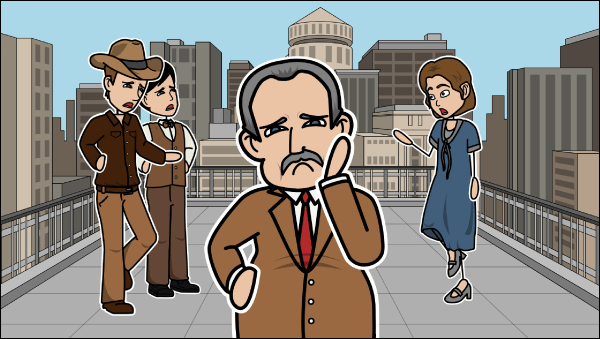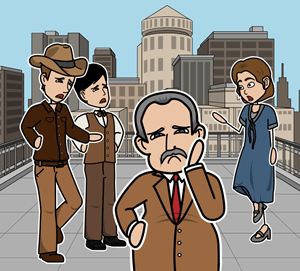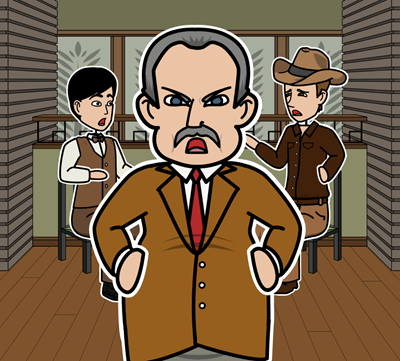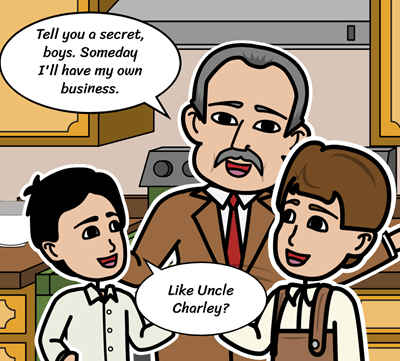

Death of a Salesman is a play written and set during 1949. Arthur Miller used his play to represent a social drama and tragedy embodying the unattainable and elusive American Dream. His protagonist, Willy Loman, is a salesman whose disillusionment ends with his suicide. This play can be especially poignant for high school students as they get closer to pursuing their dreams in college.






Set in New York City, in 1949, the audience follows the Loman family through their psychological battle with the American Dream. Willy Loman, the protagonist, is a traveling salesman, his wife, Linda, is a stay at home mother, and his two sons, Happy and Biff, have grown up "yet to make something of themselves."
Early in the play, the two sons are home visiting, which causes Willy to reminisce about their childhood. Through a series of flashbacks, the audience learns that Biff, the younger of the two boys, was praised by Willy for being athletic and well-liked. Willy valued these attributes and believed they would help his boys go far. However, in reality, Happy is in the business world, going nowhere, and Biff, unable to hold down a steady job, works as a ranch hand out west.
In another daydream, Willy is talking with Linda and then drifts to hearing his mistress’s laughter. It becomes clear that, for some time, Willy was having an affair with an unidentified woman for whom he purchased silk stockings. Although he tells Linda that his sales have been going great, things are quite the opposite, and he will soon be in jeopardy of not paying his bills. In the flashback, Linda is seen mending her stockings; this makes Willy upset and prompts him to tell her to throw them away.
More flashbacks reveal that Willy has lived a life of regret, filled with envy. He focuses on his neighbor, Charlie, a wealthy business owner who worked hard and on his brother, Ben, who stumbled on a diamond mine in Africa and is now wealthy. Now after years at the same company, Willy has become tired and old, he asks his boss to be put in the New York office. Instead, he is fired. Later, his boys take him out to dinner. In the end, his delusions get the best of him, and he kills himself in a car crash to provide his family with the $20,000 in insurance money.
At his funeral, Happy vows to prove that his father's life was not in vain and continues in the business. Biff realizes that his father's life and focus were on the wrong dream, and he goes back to the ranch, determined to find happiness in his work. Linda ends the play saying, "we are free".